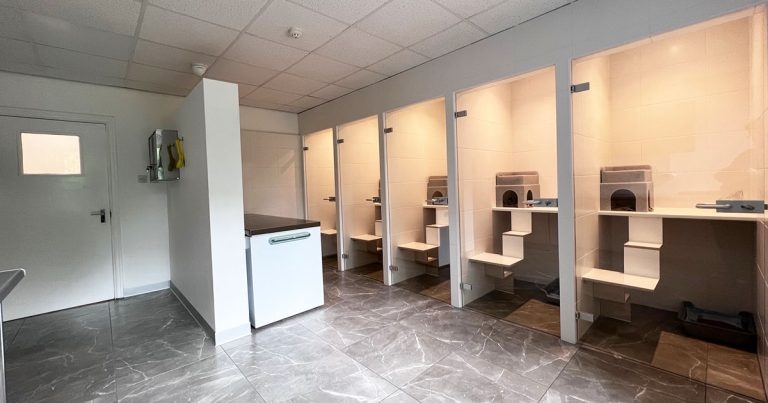7 Feb 2023
The Cardiff Cat Clinic, the only feline-exclusive practice in Wales, had long hoped to provide the service – not only for its own clients, but others facing waits across the country.

The new radioiodine unit at The Cardiff Cat Clinic has large, glass-fronted cabins and cameras for monitoring.
The Cardiff Cat Clinic will open Wales’ first radioiodine unit for the treatment of hyperthyroid cats this month.
It had long been an ambition of the practice, which opened in 2002 as Wales’ first feline-only clinic, to be able to provide the service for its clients and others in the country, who were faced with trips over the English border for the treatment.
Waiting lists for feline radioiodine therapy in the UK are lengthy. Clinic owner Michael Edwards worked with a south Wales designer to create a bespoke isolation unit to ensure the compulsory lengthy stay for patients was as comfortable as possible.
Mr Edwards said: “There is a long waiting list for feline radioiodine therapy in the UK, and patients in Wales currently have to travel to Bristol and beyond for treatment. We felt that as the only cat clinic in Wales, it was appropriate for us to provide this service.
“Great care went into the design of the unit to enrich the environment. I was very conscious that our patients would be hospitalised for 12 days and, although they are less stressed in a feline-only environment, I insisted that the cabins should be larger than others I’ve seen and glass-fronted, and the room benefits from a large window, allowing natural light and views of the outside greenery.
“We’ve added surveillance cameras for 24-hour monitoring and we even have a flat screen TV, playing videos of fish and birds, to keep our patients entertained.”
Common treatments for hyperthyroidism in cats include lifelong oral medication, a low-iodine diet or surgery.
However, some of these are not appropriate in some cases, while radioiodine treatment is successful in approximately 95% of cases, while being a safe, effective and permanent solution for affected cats.
In addition to first opinion work, the clinic – the largest for cats in the UK and still Wales’ only feline-exclusive practice – provides cardiology referral work through colleague Lois Wilkie.